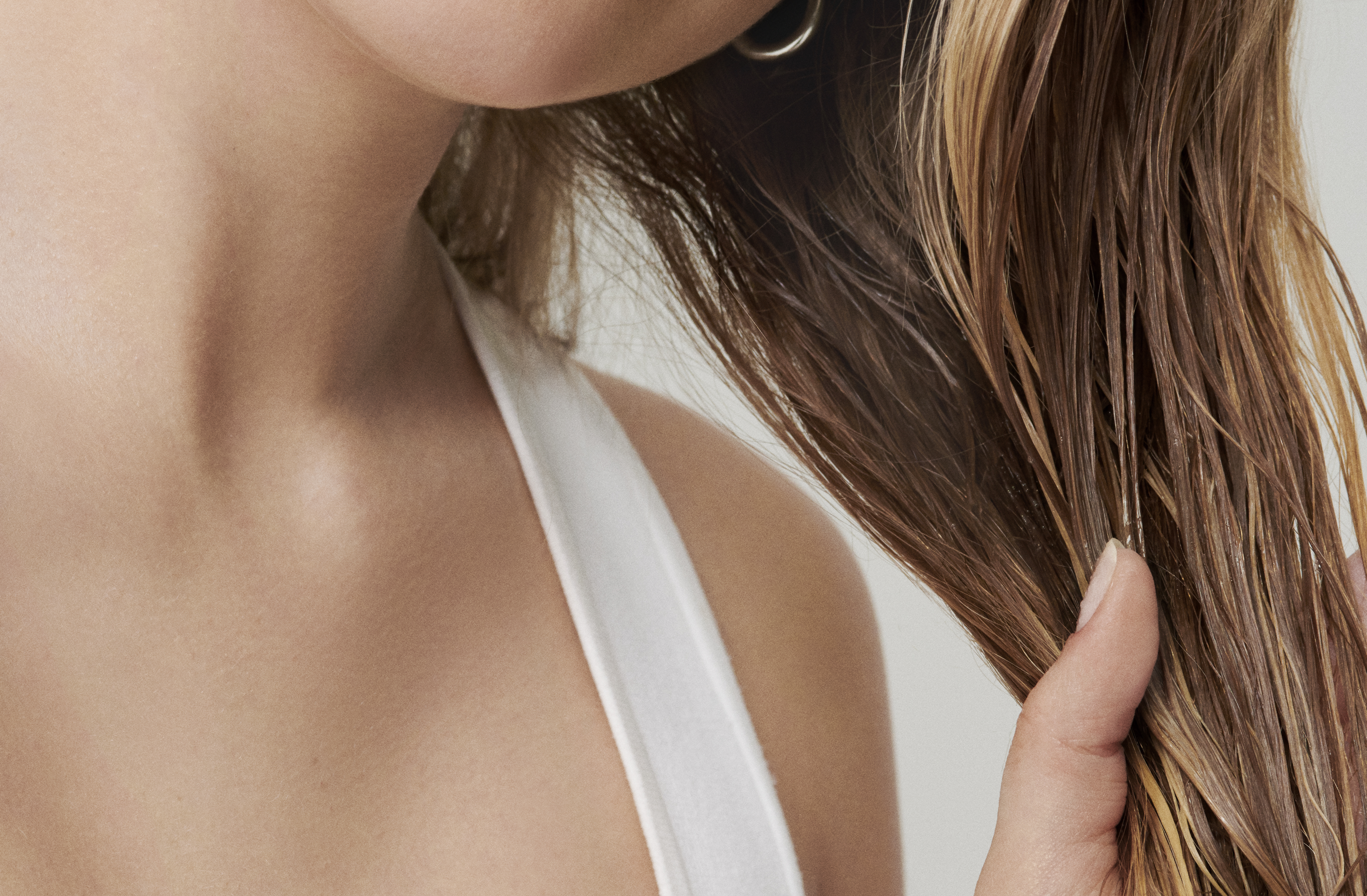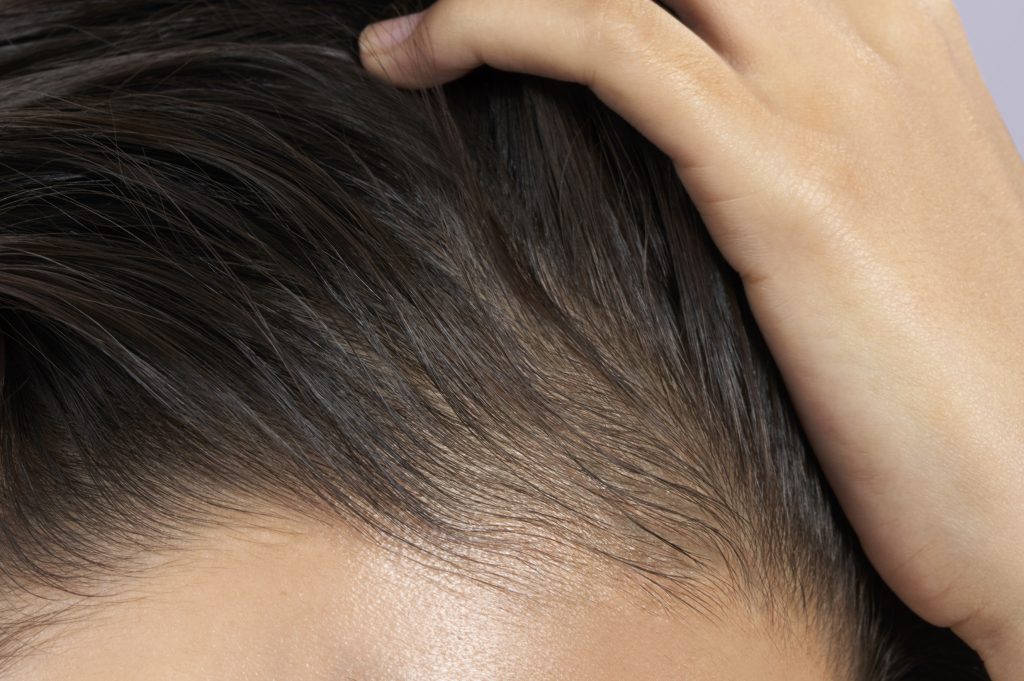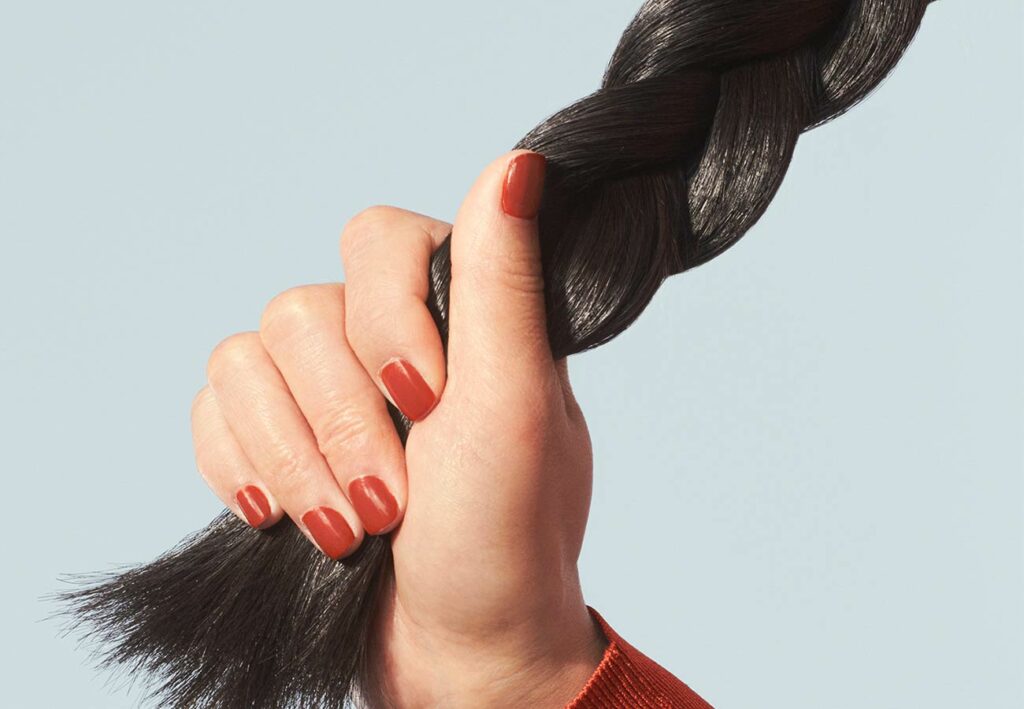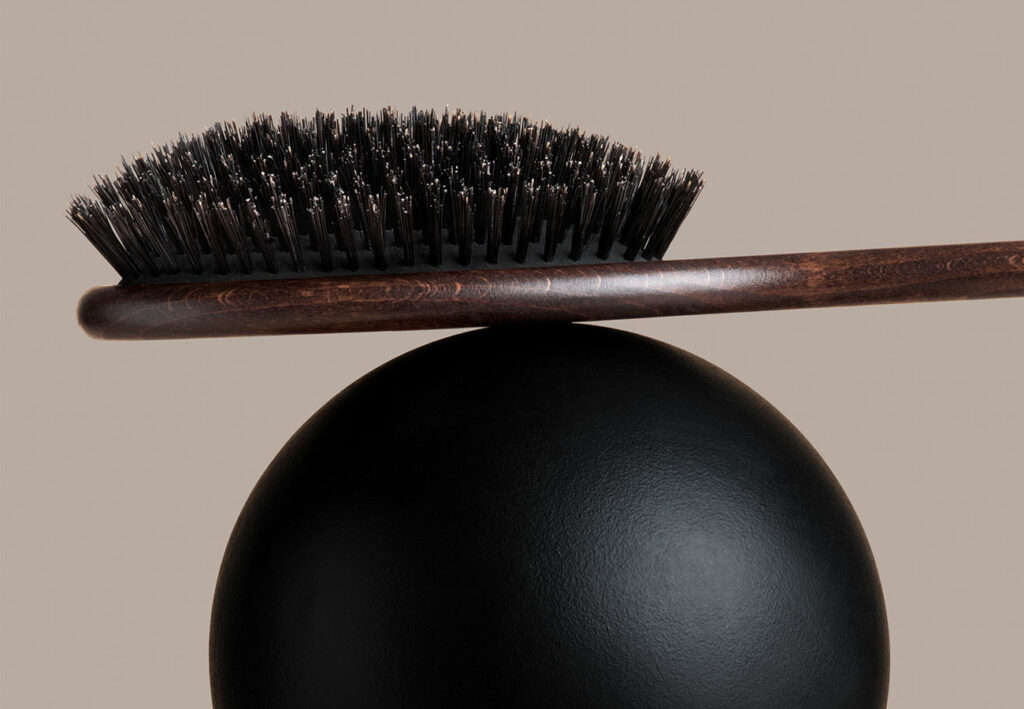How Do I Know If My Hair Is Dry?
If your hair is really dry, the odds are you know what it feels and looks like. But it can be harder to tell where the line is for overly dry hair. One of the biggest signs of overly dry hair is breakage, so if your hair feels fragile and limp, then you’re probably dealing with a deficiency of some kind.
Your hair’s flexibility is an important sign, too. If you can’t bend your hair without breakage, then you’ve got a problem. If your hair tangles easily or it feels rougher than usual, that may point to dry hair as well, and split ends that can’t hold heat styling is also a tell-tale sign of dry hair.
Finally, if your scalp is feeling extremely itchy, it’s probably due to a lack of moisture or a good cleaning. You might also notice small white flakes in your hair that could be another sign of dryness.
So, what causes all of this dryness? Well, here are a few possibilities.
Heat Styling
Your hair’s outer layer is made of cuticles that protect your hair (think shingles on a roof). They help your hair retain moisture and keep out harmful substances. But when you style your hair with a heat tool without any protection, it can strip away the cuticle layer, which damages your strands permanently. The heat from these tools can also cause damage to your scalp if used repeatedly at the root of your hair.
Blow-dryers cause the same problem for hair, creating small bubbles of steamed water that get trapped in your hair shaft. This causes your hair to feel rough and brittle because the bubbles have damaged the cortex.
The best thing you can do for your hair is to minimize the amount of heat that you use. If you want to dry your hair, use a microfiber towel to soak up excess moisture. Wait until hair is at least 60% dry before using your blow-dryer. You don’t have to cut out heat styling altogether, but if possible, try to reduce the number of times that you do it in a week. And don’t forget, if you are going to use a curling iron or straightener, apply a heat protectant first.
Environment Stressors
The next thing that could be drying out your hair is somewhat unavoidable. Every time you go outside, you’re subjecting your hair to environmental aggressors that can damage it. For example, the sun emits harmful UV rays that can have a bleaching effect on your hair. It can hurt your hair’s cuticle layer, making your strands feel brittle and even cause split ends.
The sun can be especially harmful to your hair if it’s been treated with hair color or bleach. The sun can fade the color of your hair, causing it to fade prematurely. If you’re going to be out in the sun for a long time, apply a product with sun-shielding ingredients to your hair beforehand. You can also wear a hat if you’re worried about your scalp burning.
Air pollution can also dry out your hair. When your hair and scalp are exposed to this, it can cause dryness and discomfort, as well as clog your hair follicles and weaken hair near its root, making it harder for it to grow. Your hair can also become brittle over time after being exposed to smog, pollen, and dust that collect in your hair.
There are hair products that are designed to protect your hair from pollution and keep it feeling soft and healthy. Prose asks you for your location during your consultation to assess the amount of pollution in your area and adjust accordingly.
Chemical Treatments
Let’s talk about bleach and perms. These are common hair treatments that can really stress your strands. A lot of people bleach their hair to achieve their dream color, and while that can be exciting, it can also do a lot of damage to your hair.
Bleach strips your hair of its natural oils and dissolves the melanin in your hair shaft. The chemicals used to dye your hair roughen up the cuticle layer of the hair, leaving it vulnerable to breakage. It also makes it more difficult to retain moisture, thus making your hair dry. The longer the bleach is left on your hair, the more keratin is destroyed.
Perming your hair also involves harsh chemicals that change the hair’s structure. A perm solution softens and swells the hair to allow the chemicals to enter the cortex of the hair. This involves opening and closing the cuticle, which again is bad for your hair.
Harsh Products
A lot of hair products use alcohol as a preservative in their formulas, as well as sulfates or parabens for the same reason. All of these ingredients can have a drying effect on your hair. Using products that contain alcohol can lead to an itchy and irritated scalp, as well as dull hair.
Before buying any hair product, take a look at the list of ingredients. If they mention sulfates or alcohol, do some more research before purchasing. Not all types of alcohol are terrible, but they might not be the best choice for your hair needs.
Bottom Line
There are a lot of things out there that could be messing up your hair’s flow. Whether it’s heat or bleach, it seems like everything could be potentially harmful Luckily, there are plenty of ways to protect and repair dry hair. Try our customized products at Prose and make sure you select dryness as a hair concern. We know how to cater to specific hair needs and we’re here to help you through!





